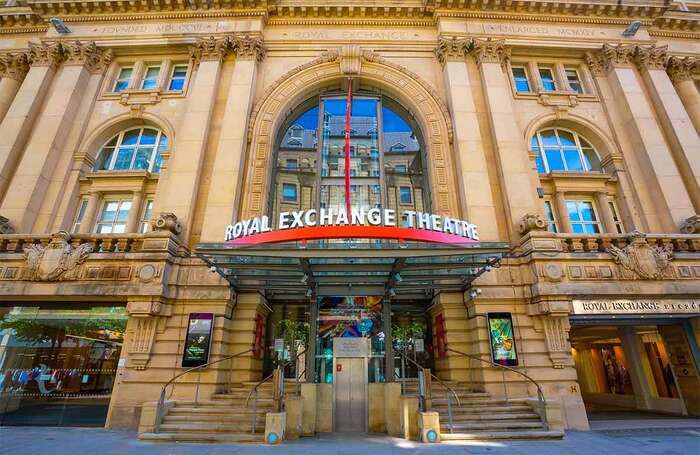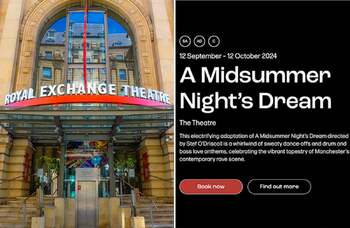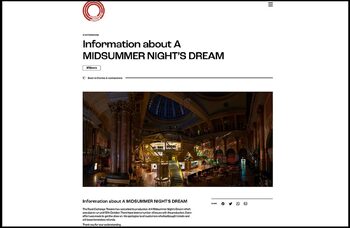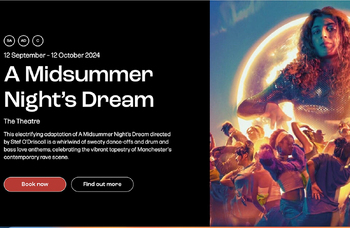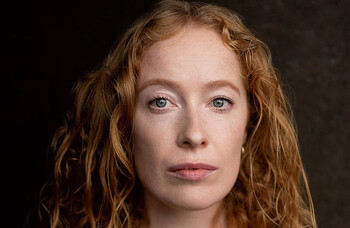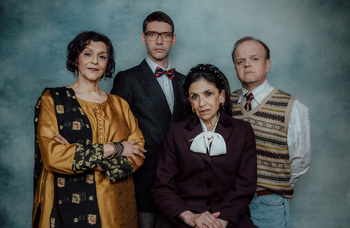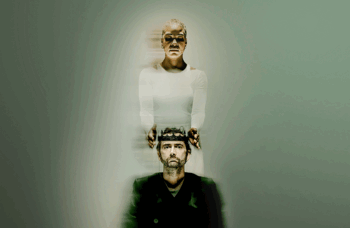Exclusive: Royal Exchange promises review and ‘new producing model’ following cancelled show
Manchester’s Royal Exchange Theatre has promised a review to learn from the "issues that arose” from its cancelled A Midsummer Night’s Dream, revealing that it will also be introducing a “new producing model” in the future.
The theatre has provided its first detailed statement (in full, below) about the cancellation of A Midsummer Night’s Dream, which The Stage has been following and breaking stories around since becoming aware of issues two weeks ago.
In the exclusive statement, which follows director Stef O’Driscoll’s last week, the theatre said it did not “censor artistic voices, however challenging they may be” but said that political views had to be “fully contextualised”. It also said that O’Driscoll’s decision to walk away from the show, as revealed in her statement last week, meant it had no choice but to cancel.
“Cancelling productions is a last resort. It damages our business and the reputation of theatre in the UK. Sadly, multiple issues with our production of Shakespeare’s A Midsummer Night’s Dream, in development since 2019, meant it never reached a public audience. The theatre sincerely apologises to all those who have been negatively impacted by the cancellation,” it said, adding: “A wide range of issues led to the cancellation of this production, including injuries to actors, new elements to the content and logistical problems, which delayed the dress rehearsal and resulted in cancelled previews. This, along with the director stepping away very late in the process, meant that we were left with no real choice but to cancel.”
The theatre said in its statement that “elements introduced to A Midsummer Night’s Dream at a late stage were not embedded into the script”.
“Complex issues that deeply affect many of our audience members lacked context within the wider narrative of the production. These additions included audience participation, and a call and response towards the end of the play. We have no issue with artists putting forward political views, but they need to be fully contextualised,” it said.
The theatre also said it did all it could to "engage in dialogue with the director to find ways to contextualise and introduce the complex issues" and said it was "saddened when the director chose to step away”.
It added: “When we decided to cancel the production, we started a review into the process from the very beginning – from the point of commissioning, the research and development process and into the rehearsal and production stages – with a view to learning from the issues that arose. We have invited the company from A Midsummer Night’s Dream to participate in this and we are open to exploring future collaborations.”
It said that, as it planned for the 50th anniversary of the theatre in 2026, it would be “introducing a new model of producing that will build on the artistic freedom, professionalism, trust and collaboration essential to delivering our mission”. However, full details of this have not been confirmed.
As first revealed by The Stage, the show was cancelled because of issues around references to the Israel-Gaza war, including a graffitied use of the phrase ‘Free Palestine’.
The Royal Exchange Theatre’s full statement below...
The statement in full
The Royal Exchange Theatre is a leading producing theatre that puts all artists, audiences and communities at the centre of its mission and is committed to creating a space in which everyone can explore their creative freedom.
We do not censor artistic voices, however challenging they may be. Collaboration and feedback are a key part of our process, ensuring we develop world-class theatre for everyone.
Cancelling productions is a last resort. It damages our business and the reputation of theatre in the UK. Sadly, multiple issues with our production of Shakespeare’s A Midsummer Night’s Dream, in development since 2019, meant it never reached a public audience. The theatre sincerely apologises to all those who have been negatively impacted by the cancellation.
A wide range of issues led to the cancellation of this production, including injuries to actors, new elements to the content and logistical problems, which delayed the dress rehearsal and resulted in cancelled previews. This, along with the director stepping away very late in the process, meant that we were left with no real choice but to cancel.
Elements introduced to A Midsummer Night’s Dream at a late stage were not embedded into the script. Complex issues that deeply affect many of our audience members lacked context within the wider narrative of the production. These additions included audience participation, and a call and response towards the end of the play. We have no issue with artists putting forward political views, but they need to be fully contextualised.
We always work hard to find creative and dramaturgical solutions to issues such as these, and worked to collaborate on ways in which these narratives could be embedded into the play. We wanted to ensure audiences could understand the nuances of rave culture – a key idea within the production – and to ensure a cohesive narrative throughout. We did all we could to engage in dialogue with the director to find ways to contextualise and introduce the complex issues, so we were saddened when the director chose to step away.
When we decided to cancel the production, we started a review into the process from the very beginning – from the point of commissioning, the research and development process and into the rehearsal and production stages – with a view to learning from the issues that arose. We have invited the company from A Midsummer Night’s Dream to participate in this and we are open to exploring future collaborations.
For half a century, the Royal Exchange Theatre has been a unique setting at the centre of Manchester for all communities to participate and enjoy new worlds created by the amazing artists we have the privilege to work with. As we plan for the 50th anniversary of the theatre in 2026, we are introducing a new model of producing that will build on the artistic freedom, professionalism, trust and collaboration essential to delivering our mission.
We look forward to welcoming audiences and artists to be part of our journey.
Production News
Recommended for you
Production News
Recommended for you
Most Read
Across The Stage this weekYour subscription helps ensure our journalism can continue
Invest in The Stage today with a subscription starting at just £7.99
